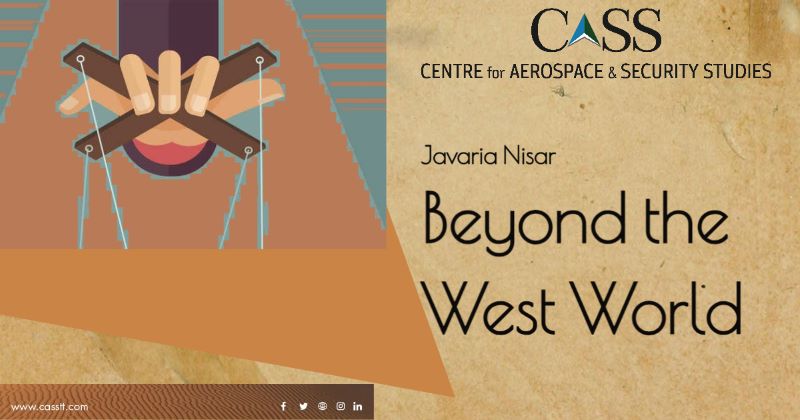The rest must follow the West’, some individuals love to argue.
For many in our part of the world, development entails the application of Western ideas and ideals. But a certain class of development practitioners think otherwise. For them, borrowed ideas cannot solve indigenous problems.
The argument is simple. Just as one size doesn’t fit all, one political or economic variable doesn’t fit into all equations. The overemphasis on Western ideals oversimplifies complex problems. Whether it is the application of liberal democracy or capitalism, Westernisation does not guarantee the same GDP rates or per capita income as found in these states. It also does not guarantee the same health and educational standards. Two principal factors underscore the failure of Western ideals in non-Western settings.
The first one is intrinsic.
Every state has its own set of cultural values, social ethos and ideological underpinnings that shape the broader contours of societal interactions and socio-political developments. In this way, every country is unique and different from others. What is good for one country may not be feasible for another. This is an area that Western pundits and protagonists of Western political and economic philosophy often fail to understand.
One of the reasons for the failure of these ideals in the South has to do with the social structure of these countries. Tribal instincts and class differences are quite pronounced in many non-Western countries. Consider Afghanistan for example – a country mired by ethnic, sectarian and tribal divisions. To ask for Western-style electoral democracy in these conditions is self-delusionary. For functional democracy, Afghanistan first needs to find an end to its ethno-tribal fissures and cultivate a strong sense of nationalism among its citizens. Without doing so, democracy will remain dysfunctional as it does today – existing only in name and not in reality.
Yet, many in the North easily overlook these peculiarities. Their firm belief in the righteousness of Western ideals, coupled with a lack of knowledge about local settings, leads them to propose actions that instead of providing solutions often end up creating more complications.
The second factor is of an extrinsic nature and involves the vested interests of foreign countries.
There is a genuine desire among many developing countries to emulate the rate of growth and development achieved by the West. To achieve the same results, governments often hire foreign consultants or consultancy firms to chalk out policies and strategies for their people to attain the same lifestyles as their Western counterparts. However, despite paying hefty sums to these consultants, many states have failed to witness any marked improvement in the living conditions of their people. In fact, some of them became worse off.
This is essentially because these so-called experts make them chase a mirage. Their proposals for social and economic transformation are a farce. The PowerPoint presentations based on concocted projections and statistics are only meant to paint a rosy picture and stir wild and unrealistic aspirations. In the end, the consultants depart with a bag of exorbitant fees and leave behind a tale of misery and deceit. Their host governments lack the knowledge and expertise to call their bluff, and only long after they are gone do they come face to face with reality. By then, it is too late and the damage is done.
Investing in indigenous methods can help mitigate these challenges. Solutions that conform to the religious and cultural norms of a society will have wider social acceptance. Hence, they will also be more enduring than a system imported from abroad and forced upon people. Likewise, cultivating local experts is essential to shed dependence on foreign consultants who neither have adequate knowledge of local settings nor the genuine desire for improving livelihoods of the locals.
Nonetheless, this article is not meant to be a general charge-sheet against all things foreign or Western. In fact, there is still plenty to learn from the West’s development experience. There is also no denying the fact that many Westerners have made invaluable contributions to global peace and prosperity.
Yet, loathing one’s own cultural traditions and values in awe of the West isn’t an advisable approach. This does not lead a nation to the path of growth and prosperity. It only makes us ethnocentric victims of an inferiority complex.
So, instead of looking at the West for solutions to each and every one of our problems, we need to think of alternative methods that have roots in our own traditions and are backed by knowledge of local settings. Such solutions will be more effective in addressing development issues in our areas and improving the standard of living of our populace. Development should be an indigenous process, not an import from abroad.
Javaria Nisar is a Research Assistant at the Centre for Aerospace & Security Studies (CASS), Islamabad, Pakistan. She can be reached at cass.thinkers@casstt.com.
Design Credit: Mysha Dua Salman
Images: Online sources




